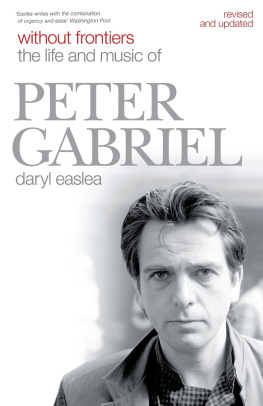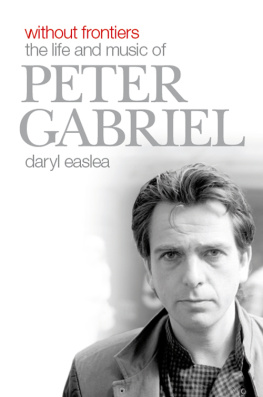Copyright 2005 Omnibus Press
This edition 2011 Omnibus Press
(A Division of Music Sales Limited, 14-15 Berners Street, London W1T 3LJ)
EISBN: 978-0-85712-739-6
The Author hereby asserts his / her right to be identified as the author of this work in accordance with Sections 77 to 78 of the Copyright, Designs and Patents Act 1988.
All rights reserved. No part of this book may be reproduced in any form or by any electronic or mechanical means, including information storage and retrieval systems, without permission in writing from the publisher, except by a reviewer who may quote brief passages.
Every effort has been made to trace the copyright holders of the photographs in this book, but one or two were unreachable. We would be grateful if the photographers concerned would contact us.
A catalogue record of this book is available from the British Library.
Book and cover designed by Chlo Alexander
Picture research by Sarah Bacon
Cover image courtesy of Corbis
For all your musical needs including instruments, sheet music and accessories, visit www.musicroom.com
For on-demand sheet music straight to your home printer, visit www.sheetmusicdirect.com
INTRODUCTION

G ENESIS ARE UNIQUE AMONG CLASSIC BRITISH ROCK BANDS IN HAVING achieved an impressive output of consistently innovative albums. For a quarter of a century, from 1969 to 1997, their recorded work has provided a kind of Bayeux Tapestry of musical progress, pricked and stitched by occasional battles, alarums and excursions.
There have been longer surviving bands: The Rolling Stones, for example, make Genesis look like stripling newcomers. But until 1994s Voodoo Lounge many critics complained the Stones hadnt made a decent album in years. Genesis, however, despite a few glitches en route, have always moved ahead, each work displaying some improvement, or at least a cluster of new ideas.
And it hasnt all been a dull, safe pedestrian process either. Just when it was thought the band might have reached a dead end, or passed their sell-by date, they have confounded the critics, revitalised their music and gained their most resounding hits. The great Genesis Come Back had become a regular occurrence, until they finally decided to call a halt in 2000, after Calling All Stations (1997). This proved to be their final studio album, made in the wake of Phil Collins departure with new singer Ray Wilson.
Phil Collins role had been pivotal to the commercial success of what had previously been described as an art rock band. It was during the drummer-turned-singers watch that Genesis underwent a transformation of fortunes. After Peter Gabriel, their prominent lead singer, quit the band in May, 1975, many wondered how the band divested of its theatrical front man (prone to wearing masks, costumes and disguises on stage), would fare without him. They fared very well. Far from slumping into a slough of despond, Genesis evolved into a mega rock stadium attraction.
Genesis then went on to survive the onslaught of punk rock, and became one of the few Seventies bands to prosper and win new audiences in the Eighties. They underwent many splits and changes of direction along the way. But in the process they created a kind of Rock University whose most distinguished old boys, Phil Collins and Peter Gabriel, began to dominate the music industry, unleashing a veritable cascade of hit solo albums and singles. Their colleagues Steve Hackett, Tony Banks and Mike Rutherford have also enjoyed their own levels of success, to the point where Genesis-related product at times swamped international charts in the teeth of competition from many high profile contemporary artists.
The graduates of the Genesis school have certainly done their homework. Their first album From Genesis To Revelation (1969), saw the band set out its wares and determine its future policy. Arrangements, soundscapes, unusual lyrics, imaginative use of a range of instruments and dramatic, memorable themes would be at the heart of their music and presentation from the outset.
While Genesis was first perceived as a neo-classical albums band there was no lack of humour in their work and they were adept at creating three-minute classic hits. Certainly, they were celebrated for dramatised, extended works like The Knife, The Musical Box, The Return Of the Giant Hogweed, Watcher Of The Skies and Suppers Ready which illuminated a trio of early albums, Trespass, Nursery Cryme and Foxtrot.
However, the band was always capable of editing its work, producing short songs that reflected an affinity with pop.
Both Peter Gabriel and Phil Collins grew up listening to Tamla Motown and were unabashed fans of The Who and The Beatles. In the midst of creating orchestrated epics, rich in keyboard and guitar solos, many effective short form Genesis ditties worked their way into the singles charts. From I Know What I Like in 1974 through to Mama, Invisible Touch and I Cant Dance in 1992, Genesis unleashed a steady flow of memorable hits.
They were greatly assisted by the advent of promo videos in the Eighties, as they modernised and updated their sound and image from such albums as Duke and Abacab onwards.
Genesis recording career has been a sort of balancing act, involving their own needs as writers and performers, the skills of various producers, new technological developments and dictates of changing public taste.
Genesis began as unknown schoolboys, encouraged by producer Jonathan King to tackle a Biblical theme for their first album. When this failed to set the world ablaze, they resolved to develop their own ideas, bringing in new musicians, until they settled on the line up of Peter Gabriel (vocals, flute), Mike Rutherford (guitars, basses), Tony Banks (keyboards), Steve Hackett (guitars) and Phil Collins (drums and vocals).
An entertaining stage act won them a dedicated underground following, they mixed theatrical concepts with elements of classical and rock music.
Their early albums, reflecting their shows, were packed with brilliant images and themes. Next came the ambitious double set The Lamb Lies Down On Broadway. It meant so much to Peter Gabriel, who took responsibility for the concept, that he quit the band when it caused more controversy both within and without the group than he could bear.
After this watershed album, Genesis moved into a period of more mellow and introspective works like A Trick Of The Tail, Wind And Wuthering and And Then There Were Three with drummer Phil now assuming the role of lead singer. The band was whittled away to a three-piece, following the departure of Steve Hackett in 1978. Banks, Rutherford and Collins held the Genesis banner aloft in the studio, while the touring band took in drummers Bill Bruford and Chester Thompson and guitarist Daryl Stuermer. These musicians would be featured only on the bands live albums, but the studio albums would continue to be devised by the core members in conjunction with producers David Hentschel, Hugh Padgham and Nick Davis.
The early Eighties saw Genesis abandon its overtly progressive rock stance, as they brought in brass players and and drum machines. There was less scope for the rhapsodic piano and organ solos that had been such a feature of their past work. However, with a powerful new drum sound, and Collins dominating vocal presence, the tightly produced Genesis records of the techno decade had enormous impact.

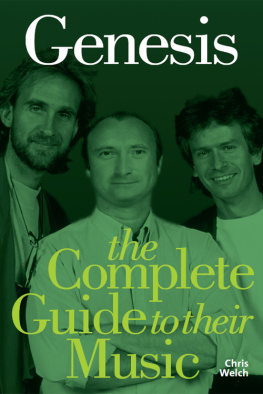
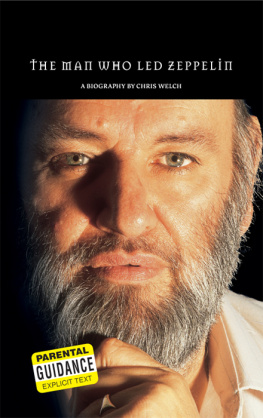

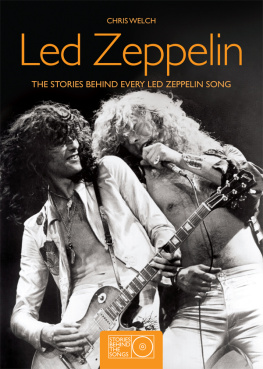
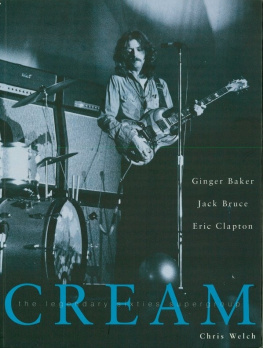

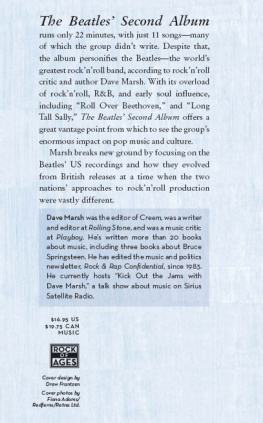
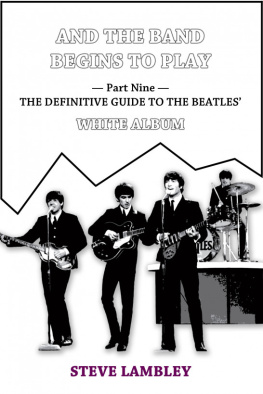
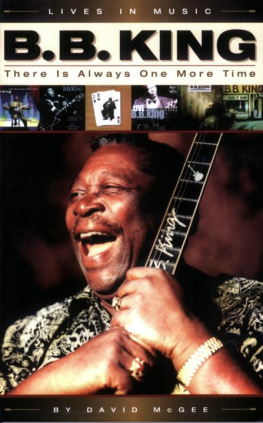

![Lambley - And the Band Begins to Play: [Part9 The Definitive Guide to the Beatles White Album]](/uploads/posts/book/213743/thumbs/lambley-and-the-band-begins-to-play-part9-the.jpg)

